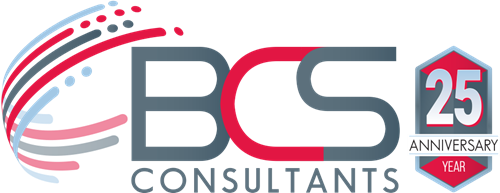
As facial recognition technology (FRT) becomes more widespread in everyday life—from smartphones and lobby access to airport security checkpoints—it’s no longer a question of if businesses will adopt this technology, but how they can do so responsibly.
At BCS Consultants, we work closely with forward-thinking security partners like Verkada to deliver FRT solutions that prioritize privacy, compliance, and control. This blog explores the growing regulatory landscape around facial recognition and the privacy-first features that help organizations use it securely and ethically.
Understanding the Regulatory Landscape
FRT relies on biometric data, which is increasingly governed by privacy laws across the globe. In the U.S., more than 25 states have regulations in place related to biometric or facial data, with many more bills under review. Internationally, countries like Canada (PIPEDA), the EU (AI Act), and Australia (Privacy Act) are advancing strict policies that set the tone for responsible implementation.
These regulations generally focus on the collection, usage, storage, and disclosure of sensitive data—requiring businesses to be transparent, selective, and secure in how they deploy facial recognition tools.
When Should Your Organization Use Facial Recognition?
Before adopting any FRT system, it's important to evaluate whether the use is necessary and proportionate to the problem it’s solving. A few key considerations include:
- Is there a less intrusive alternative?
- Can usage be targeted or limited to specific use cases?
- Are individuals being properly notified?
- How is data stored, secured, and eventually discarded?
- Are your team members trained and governed on its appropriate use?
At BCS Consultants, we help organizations answer these questions while customizing solutions that meet both their operational goals and their ethical obligations.
Privacy-Focused Features Built for Compliance
Through our partnership with Verkada, we offer solutions designed to help organizations meet regulatory and internal compliance standards. These include:
1. Person of Interest Only Face Search
This feature enables focused use of facial recognition by limiting searches to known threats. The system discards non-matches immediately, meaning biometric data from unrelated individuals is not stored or retained—helping maintain privacy while still addressing high-risk scenarios like repeat theft, trespassing, or campus threats.
2. Face Blur and Live Privacy Controls
Organizations that require real-time monitoring but want to preserve individual privacy can use live face-blurring capabilities—ideal for public spaces, education, and retail.
3. QR-Based Disclosure Signage
To help businesses comply with notification laws, Verkada offers privacy signage embedded with QR codes. These lead to detailed digital policies, including data retention timelines and security protocols—ensuring full transparency even in signage-limited environments.
4. Centralized Governance & Audit Logging
Using Verkada’s Command platform, only designated administrators can enable facial recognition, and all actions are recorded in an audit log. This includes logins, camera views, FRT activation, and more—empowering leadership to monitor platform usage and ensure responsible oversight.
Use Cases Where FRT Can Be Essential
While not suitable for every setting, facial recognition can serve as a critical tool in environments where speed, accuracy, and safety are paramount. Examples include:
- Schools and campuses for rapid identification of unauthorized individuals
- Retail locations for managing repeat offenders and organized retail crime
- Hospitals and healthcare facilities for securing restricted areas
- Corporate campuses looking to enhance perimeter and access control
In these settings, targeted, auditable FRT deployment can add a meaningful layer of protection without compromising individual rights.
The Path Forward: Responsible Innovation
As FRT continues to develop, it’s essential that adoption be guided by clear policies, informed consent, and robust safeguards. At BCS Consultants, we don’t just implement technology—we help organizations design frameworks that support both security objectives and compliance requirements.
With solutions from trusted partners like Verkada, we’re helping clients deploy smarter surveillance tools that meet the moment, without sacrificing trust.
Curious about how facial recognition could (or should) fit into your organization’s security strategy?
Let’s talk. Our team can walk you through the options, privacy features, and best practices tailored to your environment.

You must be logged in to post a comment.